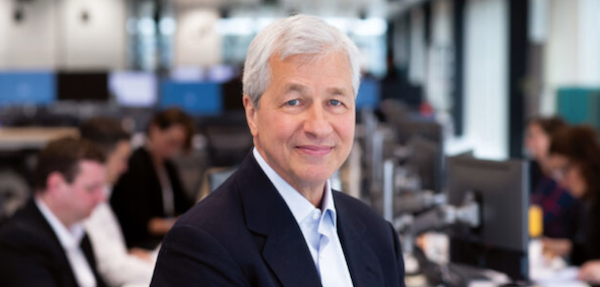Sign up for our free daily newsletter
Get the latest news and some fun stuff
in your inbox every day
Get the latest news and some fun stuff
in your inbox every day
The global Covid-19 economic debacle is taking its toll on our portfolio companies, and today I will consider US banking giant JP Morgan. The company put out an earnings report yesterday for the first quarter of the year, up to March 31, so we have some fresh data to consider.
There are typically two problems and two benefits for banks when a big economic crisis blows in. The first problem is that central banks tend to cut interest rates which depresses lending margins, and the second problem is that bad debts rise. The first benefit is that they make more money from trading in volatile markets, and the second is that they gain deposits.
To the results. JP Morgan first-quarter profits fell by 69% and they set aside $8.29 billion for loans that might go bad. That was the biggest provision in at least a decade. Of that amount, $4.5 billion was extra reserves for losses in its consumer bank, mainly on credit cards. Another $896 million was for advances to companies that may go under.
When markets are wild, liquidity is very valuable, so banks can charge a lot for it. JP Morgan is a major Wall Street operator and made $7.23 billion from trading stocks and bonds, the most for any quarter in history.
Another bit of good news is that in a crisis the strongest banks attract more deposits. Deposits at JP Morgan rose by 23% for the quarter. People are withdrawing savings from smaller banks, companies are drawing down their credit lines at other funders and investors are selling their stocks and bonds so they can get as much cash as possible. Once in cash they are looking for the safest place to put it, which is at the biggest, sturdiest bank - JP Morgan.
The outlook for dividends is a little uncertain. For this period a common dividend of $0.90 per share will be paid. Share buybacks have been suspended.
CEO Jamie Dimon had serious heart surgery on March 5 after being diagnosed with an acute aortic dissection, but returned to work only four weeks later. He temporarily handed control of the firm to Co-Presidents Daniel Pinto and Gordon Smith. At the earnings call yesterday he said "I'm feeling great. I'm walking several miles a day. I like working, I've been working for several weeks now. It doesn't really change very much how I view the world." That's good news, because he is a very good leader. He is 64 years old.

What about the future? JP Morgan seems to be assuming a relatively swift economic recovery, with management noting that they model US GDP peaking at minus 25% in the second quarter of 2020 and then recovering in the second half of the year. They also project US unemployment to hit 20% but then recover quite quickly once lockdown restrictions are relaxed. Their projected loan loss rates include an estimation for the benefit from government stimulus payments to their clients.
I might sound cheerful about all this, but please note that I am not. The JP Morgan share price has been soundly walloped in the past two months. From a high of $141.10 back in January to just $95.50 now. This is downright disappointing. We are not investing our hard-earned savings and expecting 33% drawdowns!
Our investment style is to suck up the pain and wait for the recovery. JP Morgan is a fortress, and in time the business and the share price will recover. That is what has happened in all of the prior crises. This is a good stock to hold, or to buy.